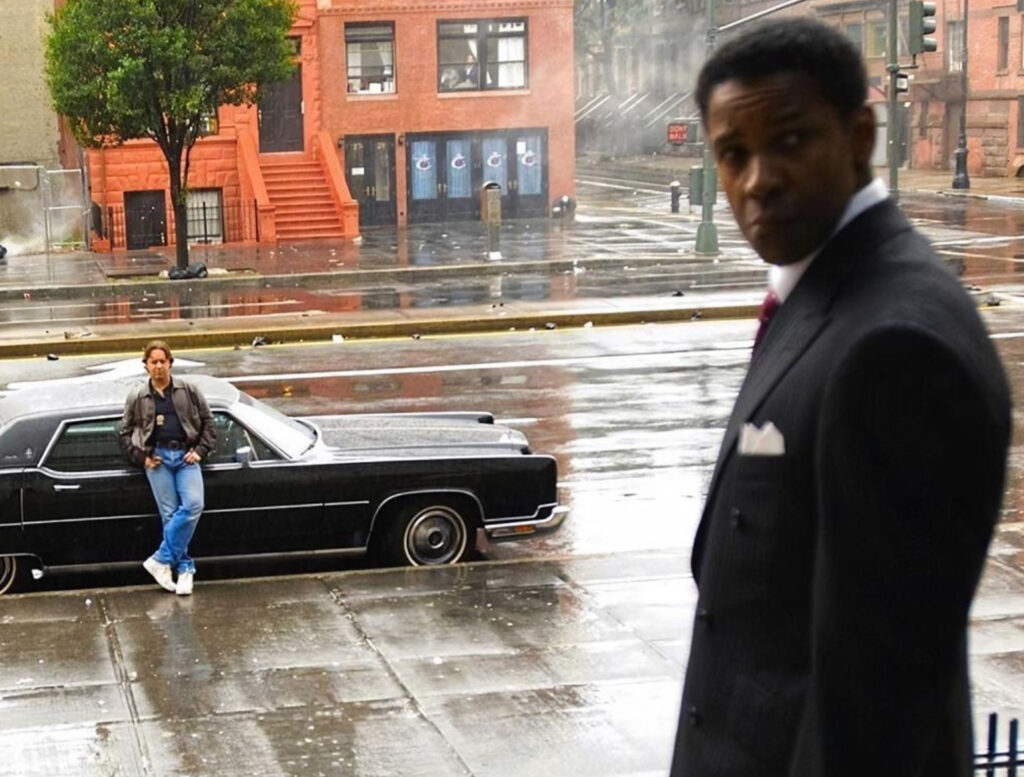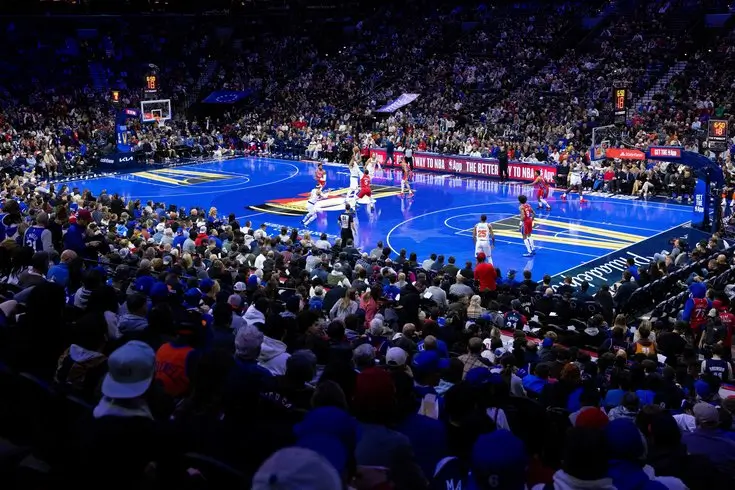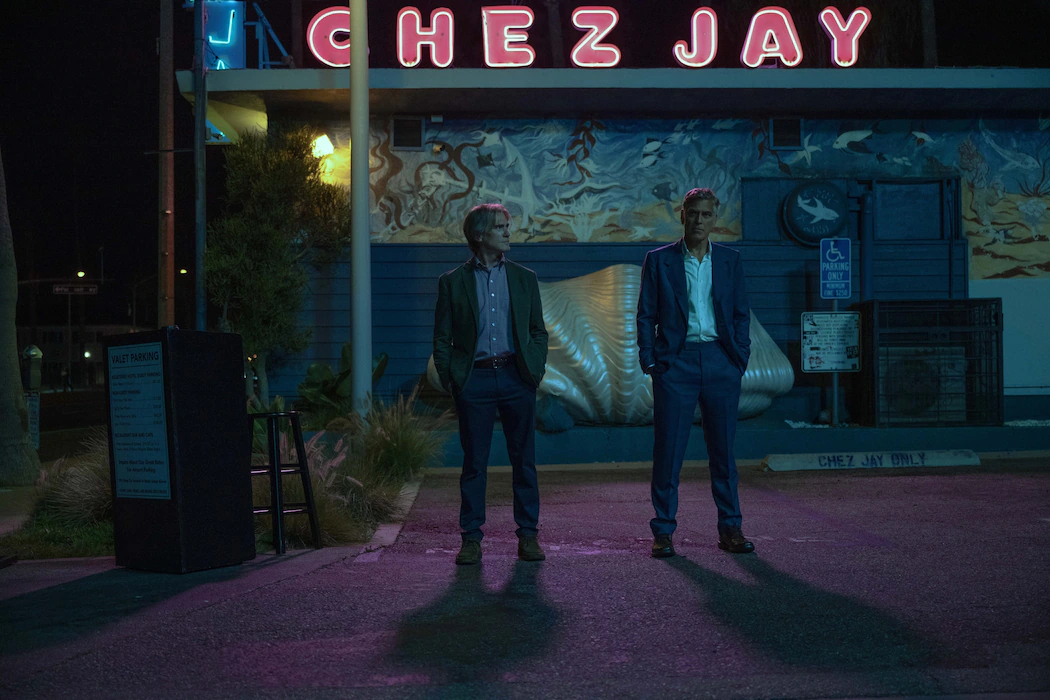
Frank Lucas was a man of contradictions. A disciplined, ruthless heroin kingpin who ruled Harlem in the 1970s, he built an empire on silence, structure, and an unconventional code of ethics. His rise and fall mirrored the classic American gangster arc—but with a twist. Unlike the flamboyant dons of yesteryear, Lucas operated like a ghost, slipping between legality and brutality with surgical precision.
Bringing that enigmatic figure to life on screen was no small task. But in Ridley Scott’s 2007 film American Gangster, Denzel Washington stepped into the role and delivered a performance that was as nuanced as it was explosive. This wasn’t just another crime film—it was a cultural event, largely due to Washington’s magnetic, simmering portrayal of a man who hid his empire beneath bespoke suits and cold logic.
The Real Frank Lucas: A Complicated Blueprint
Born in La Grange, North Carolina, in 1930, Frank Lucas moved to Harlem in his youth and witnessed firsthand the economic disparity and corruption that would later shape his worldview. After learning the ropes from Harlem crime boss Ellsworth “Bumpy” Johnson, Lucas rose to prominence in the heroin trade by cutting out the Italian mafia middlemen and sourcing his product directly from Southeast Asia. His “Blue Magic” heroin was purer and cheaper than competitors’, giving him both a branding advantage and a monopoly.
Lucas operated with military efficiency—allegedly shipping heroin in U.S. military coffins during the Vietnam War and employing family members to ensure loyalty. But despite his calculated demeanor, his empire unraveled with his 1975 arrest, eventually turning government informant to avoid a lifetime sentence.
This backdrop sets the stage for American Gangster, which takes some liberties with the truth but remains emotionally faithful to Lucas’s dual nature: charismatic and chilling, loving and lethal.
Denzel Washington: Master of Controlled Chaos
By the time American Gangster was in production, Denzel Washington was already one of the most acclaimed actors in Hollywood. From Malcolm X to Training Day, he had developed a reputation for embodying characters who grapple with power, morality, and identity. But Frank Lucas was different.
Where Alonzo Harris in Training Day was showy, chaotic, and openly corrupt, Lucas required an entirely different kind of menace. Washington dialed down the volume, focusing instead on stillness, posture, and tone. His Frank Lucas speaks softly but with deadly implication. He rarely shouts. He rarely sweats. His control is terrifying.
Take, for instance, the now-iconic “you put hands on my coat” scene. With only a few words and one shot to the head, Lucas moves from quiet dinner to cold-blooded execution. Washington plays it with chilling restraint, letting silence speak louder than violence.
This ability to express emotion through micro-behavior—a tightening jaw, a pause before a word, an arched brow—makes Washington’s Lucas not just a drug kingpin, but a character study in moral compartmentalization.
Acting Choices: Physicality, Diction, and Dressing the Role
Washington’s transformation into Frank Lucas is complete not just through dialogue, but through body language and sartorial cues. Wearing vintage three-piece suits and wide-brimmed fedoras, he adopts the bearing of a 1970s businessman—regal but understated.
He walks with measured cadence. He rarely uses contractions when speaking. His language, even when ordering hits, is almost formal. This reinforces Lucas’s belief that he was a businessman first, not a gangster.
Washington also used physical stillness to express emotional turmoil. In scenes where Lucas’s control begins to erode—such as when his cousin is murdered or when Richie Roberts closes in—Washington’s body stiffens, his words become more clipped. This subtle modulation makes his performance feel grounded and dangerously believable.
Chemistry with Russell Crowe: Dual Protagonists
A key strength of American Gangster lies in its dual narrative. Russell Crowe’s portrayal of detective Richie Roberts—a man as morally principled as Lucas is morally ambiguous—creates a tension not built on action, but on ideology.
Their eventual meeting, which comes after two hours of narrative buildup, is magnetic. Washington and Crowe play the scene like a chess match—no shouting, no overacting. Just measured language and psychological warfare. You believe Lucas respects Roberts, not because he’s a cop, but because he’s not corruptible.
Washington subtly mirrors Crowe’s energy in that scene, showcasing how Lucas evaluates power even in the face of arrest. Their performances exist in conversation, forming a duality of justice and injustice that complicates the audience’s moral position.
Impression
A Defining Moment in Washington’s Career
American Gangster was a box office success and earned two Academy Award nominations, but what lingered longer than accolades was Washington’s portrayal of Lucas.
The performance bridged gaps across generations of filmgoers. For older viewers, it echoed the gravitas of Godfather-era mob cinema. For younger audiences, Washington made crime drama feel immediate again—not through excess, but through emotional clarity.
Critics noted how he resisted the urge to glamorize Lucas. His character may dress well and command a room, but Washington never lets us forget that Lucas is a violent, often remorseless figure. Even his most charming moments are tinged with danger.
Thematic Underpinnings: Morality in a Monochrome World
One of the most compelling facets of Washington’s performance is how it anchors American Gangster in moral ambiguity. Lucas is not a Robin Hood. He profits from addiction. He manipulates loyalty. But Washington shows us that he also values order, abides by a personal code, and knows when he’s crossed a line.
In an era where crime films often lean into spectacle, American Gangster—thanks to Washington—leans into the contradictions of character. Lucas is both admirable and appalling. He loves his family but builds his fortune on destruction. He’s loyal but not above betrayal. Washington’s layered portrayal forces us to confront the uncomfortable truth that greatness and ruthlessness often share a face.
Legacy and Influence: Shaping the Cultural Archive
Washington’s Frank Lucas has become a fixture in pop culture. Lines from the film are quoted in rap lyrics, used in motivational videos, and referenced in conversations about power and discipline. Unlike the brashness of Tony Montana or the theatricality of Tommy DeVito, Lucas’s cool efficiency speaks to a different kind of criminal archetype—the executive outlaw.
More than that, the performance influenced how biopics approach morally complex figures. It helped pave the way for films like Black Mass, The Irishman, and Narcos, where storytelling relies not just on action, but on internal tension.
Washington didn’t just portray Frank Lucas—he reconstructed him, giving the real-life figure a new mythology. In doing so, he made Lucas unforgettable—not because of what he did, but because of how he chose to move through the world.
Thoughts
Frank Lucas will remain one of the most compelling and controversial figures in American criminal history. But through the lens of Denzel Washington, he became more than just a headline—he became a meditation on power, legacy, and the cost of ambition.
Washington didn’t ask us to admire Lucas. He asked us to understand him. And in doing so, he delivered one of the most disciplined, complex, and culturally impactful performances of his career.
It was a performance not about glamor—but about truth. A truth that still resonates in the echo of Lucas’s quiet command: measured, magnetic, and always one step ahead.
No comments yet.









